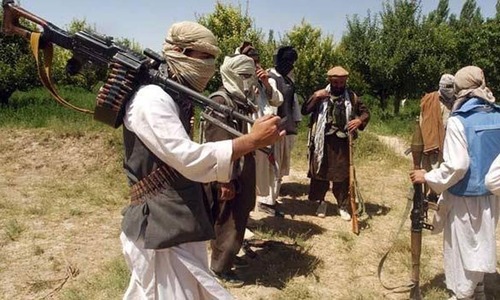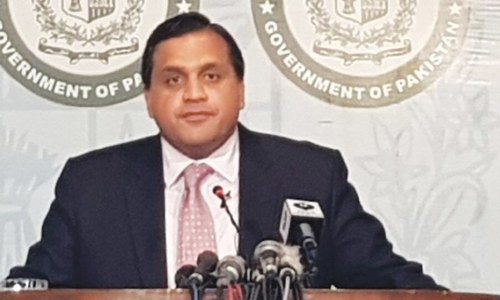ISLAMABAD: Army Chief Gen Qamar Javed Bajwa met Afghan ambassador Dr Omar Zakhilwal on Wednesday to discuss the implementation of the recently formed bilateral ties framework — the Afghanistan-Pakistan Action Plan for Peace and Solidarity (APAPPS) and cooperation for peace in Afghanistan.
“Today in my regular meeting with Pak Army Chief Gen Qamar Bajwa had detailed discussion on key issues of bilateral importance including our joint efforts for peace and reduction of violence in Afghanistan and full implementation of APAPPS,” Ambassador Zakhilwal tweeted after the meeting.
Meanwhile, the Inter-Services Public Relations (ISPR) said: “During the meeting matters of mutual interest including security situation in the region/Afghanistan were discussed.”
The meeting took place a day after senior US official Ambassador Alice Wells visited Islamabad and held a meeting with Gen Bajwa in which both sides had agreed to remain engaged for peace in Afghanistan.
The US has renewed its pressure on Islamabad to take action against Taliban leaders, which it claims to be based in Pakistan and sees them as an obstacle to peace in Afghanistan.
The US has started addressing Pakistan’s security concerns in a bid to win its support for peace efforts in Afghanistan. Last month, Afghanistan-based Tehreek-i-Taliban Pakistan (TTP) chief Mullah Fazlullah, whose elimination or capture Pakistan had been demanding for long, was killed in a drone attack. Another senior TTP figure Omar Rehman, also known as Ustad Fateh, who served as the militant group’s operational commander was reportedly killed in another drone attack on Tuesday. Several other TTP militants were also killed in the incident.
According to Voice of America, Rehman was also in line as possible replacement for Fazlullah, but the TTP leadership council elected Mufti Noor Wali, known as Abu Mansoor Asim, as its new chief.
Rehman briefly served as TTP leader after Fazlullah’s killing.
The United States and Afghanistan are now pushing Pakistan to either act against the Taliban or bring the militants to the negotiating table. The Taliban, this year observed unprecedented Eid ceasefire, but soon afterwards returned to fighting.
This week, Afghan President Ashraf Ghani ordered resumption of counterterrorism operations after the Taliban did not reciprocate his restraint. However, he has kept the option of resumption of ceasefire open. “I am ready for a ceasefire with the Taliban whenever they require me to do so because the ceasefire is a national demand. I leave it for them to decide whether they want to have a ceasefire truce for 10 days or one year,” he said in Kabul.
Published in Dawn, July 5th, 2018














































